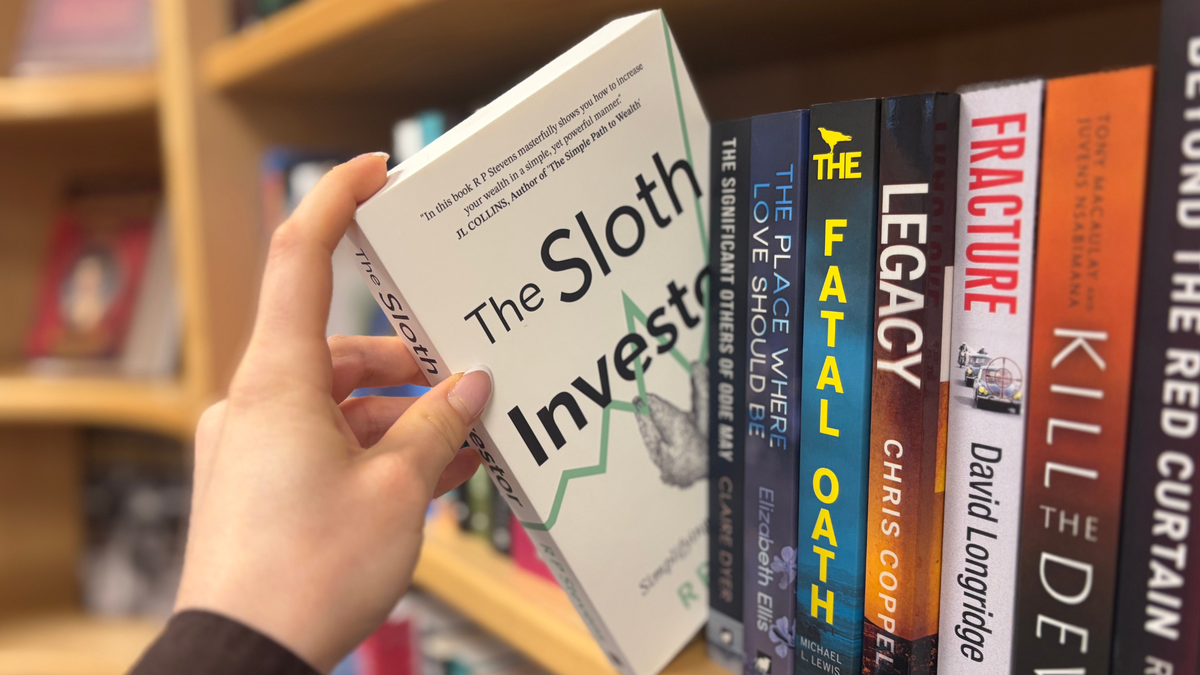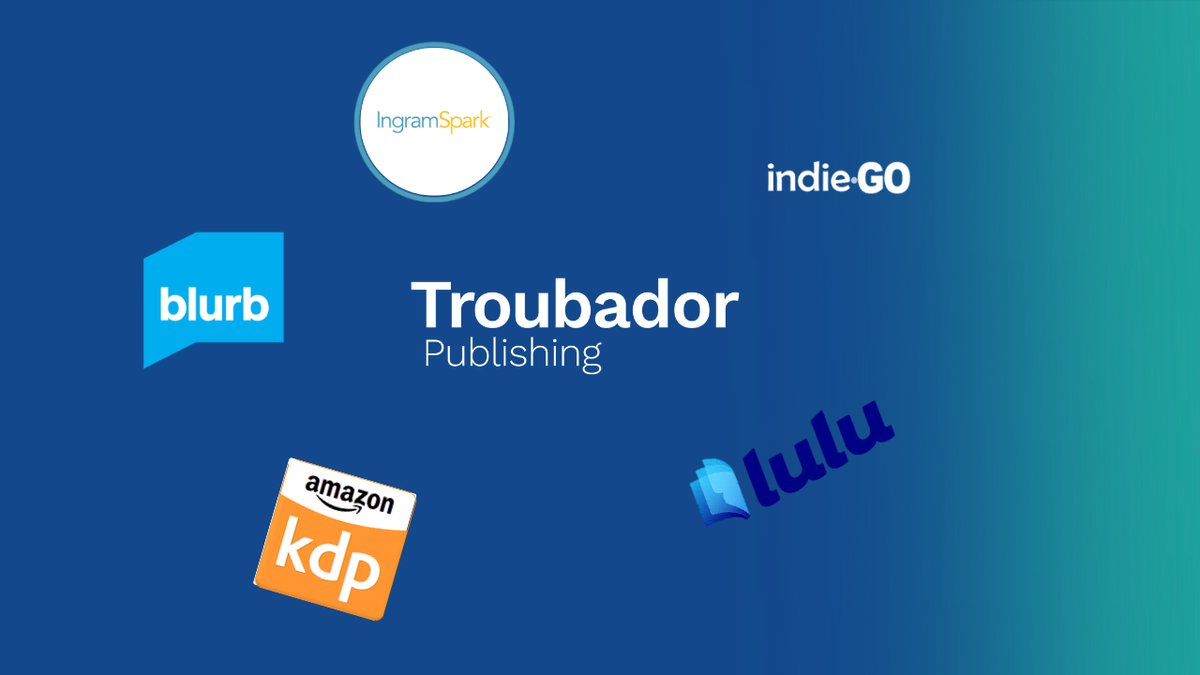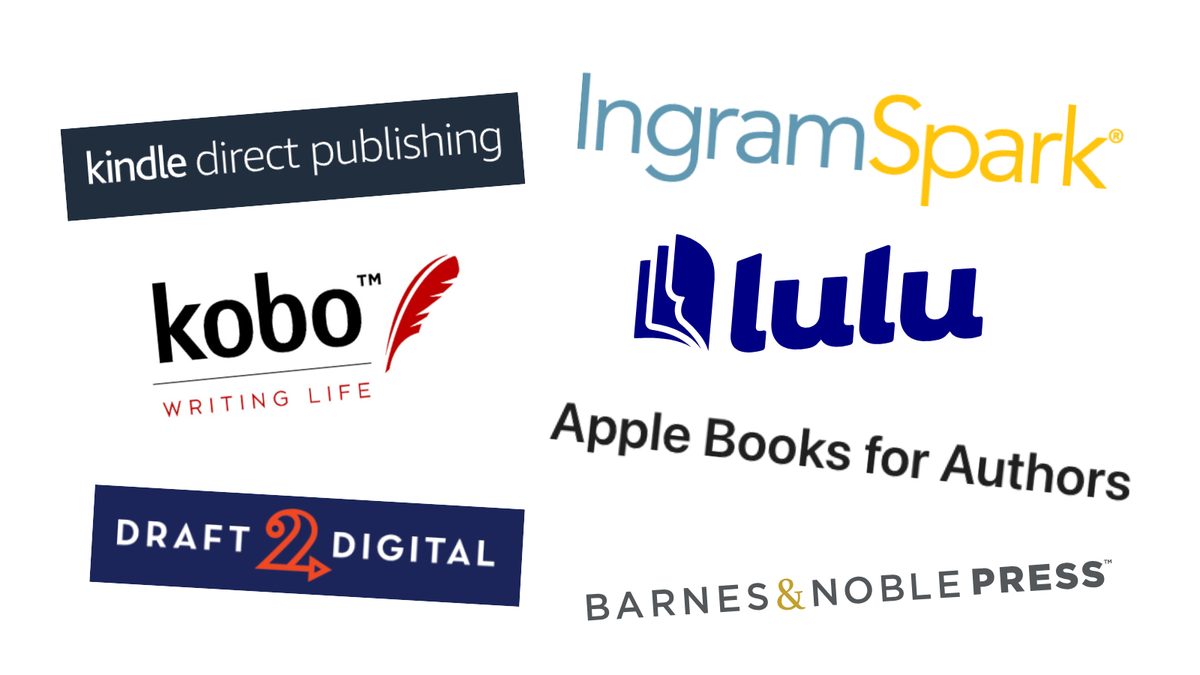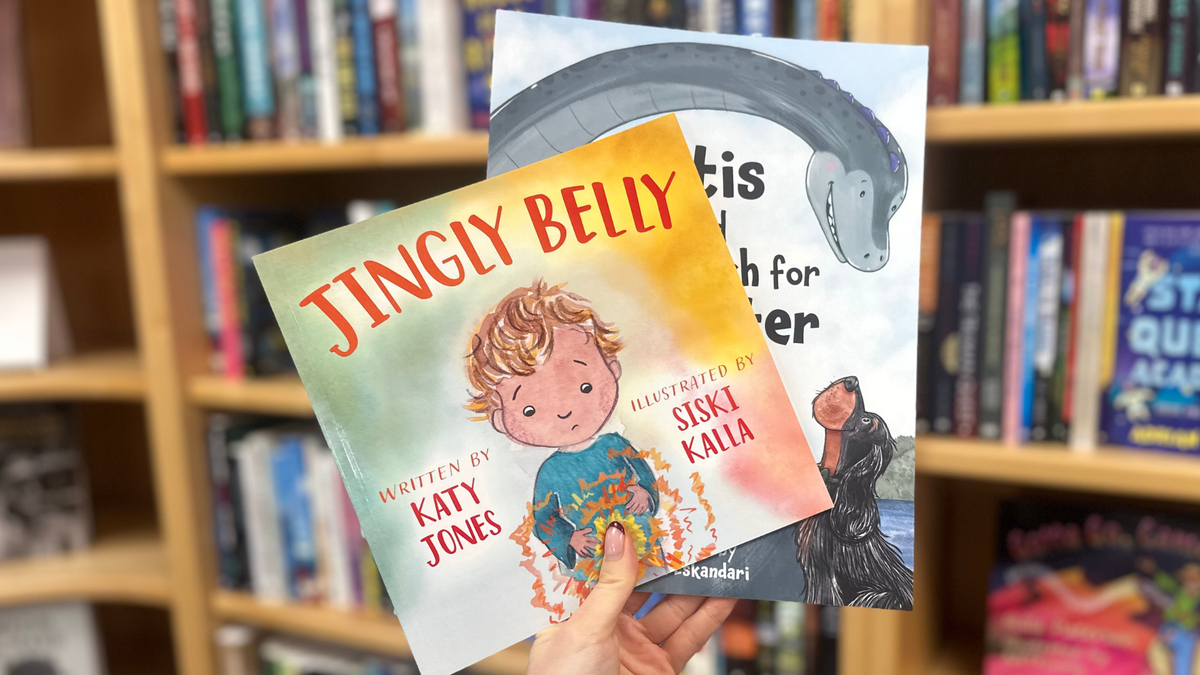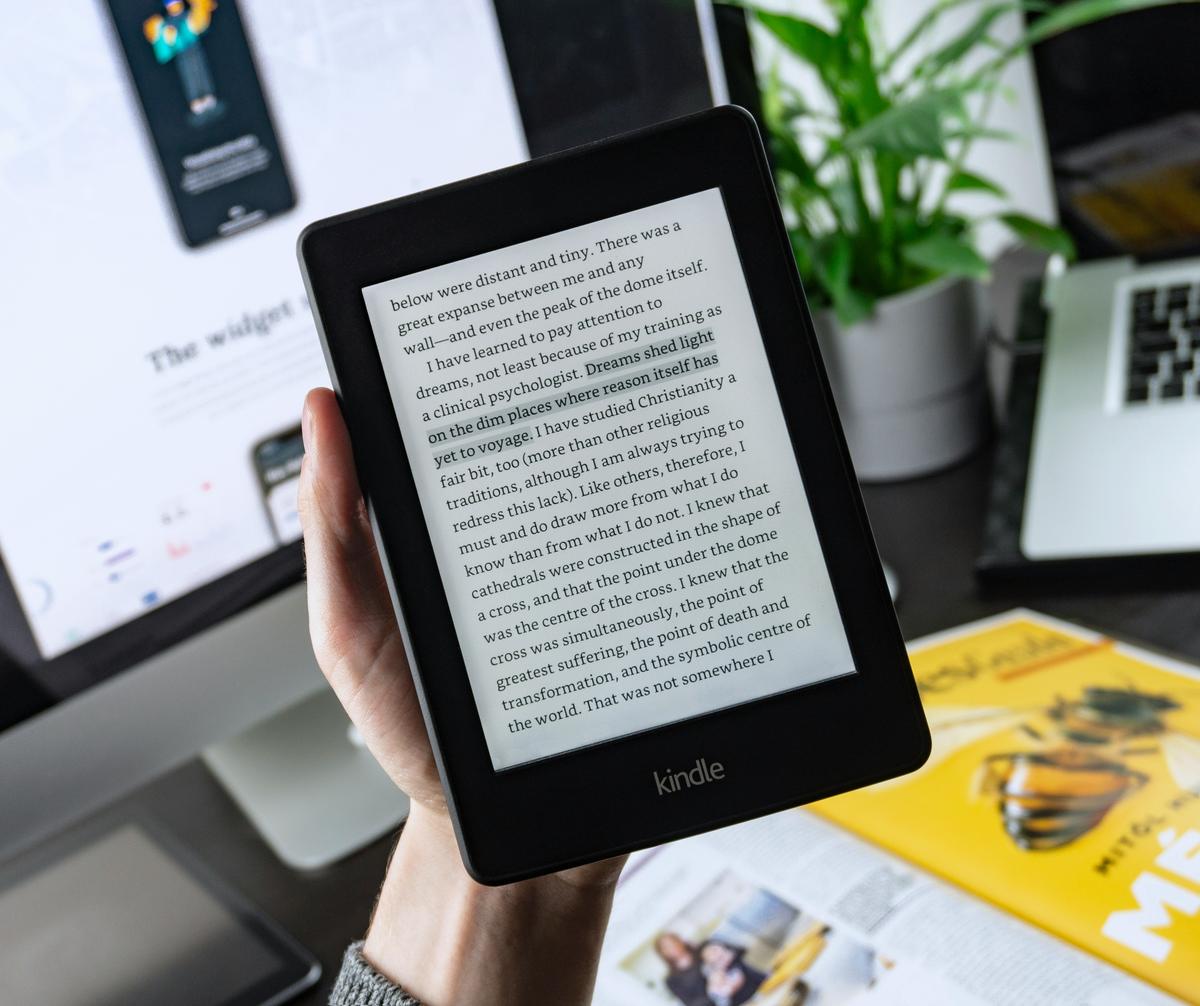
8th January, 2025
6 min read
Using a Publisher's ISBN vs Your Own: What Authors Need to Know
Written by:
Chloe May
One of the most common questions prospective authors ask us is whether they should use their own ISBN or a Troubador one. This topic not only confuses many first-time authors but is also a crucial decision for an author to make right from the beginning of the publishing process.
In this blog article, I’ll discuss the pros and cons of publisher-owned and author-owned ISBNs to give you the clarity you need to make an informed decision.
Before we get started, be aware that all publishers work slightly differently. As such, the information in this article outlines how Troubador provides ISBNs to our authors, not how every publisher does so. We encourage all authors, whether publishing with us or not, to thoroughly research and understand the specific practices of each organisation they are considering working with.
What Is an ISBN and Why Does It Matter in Publishing?
Before we dive into the specifics of using a publisher’s ISBN or an author-owned one, let’s ensure we’re all on the same page about what an ISBN is and why it is essential for your book’s journey. An ISBN (International Standard Book Number) is a unique 13-digit identifier assigned to each edition and format of a book. It serves as the book’s global fingerprint, allowing efficient cataloguing, sales and distribution across bookshops, retailers and online platforms.
Without an ISBN, your book cannot be tracked by retailers, wholesalers or distributors, limiting your ability to make it available to the public. An ISBN also helps booksellers and wholesalers differentiate between editions, formats and even translations of a title. Essentially, it’s a key part of making your book discoverable in the global marketplace.
A key consideration for authors considering self-publishing with Troubador is whether to use a Troubador ISBN or whether to source their own. The vast majority of our authors choose to use a Troubador ISBN for the reasons outlined below, but this choice comes with different advantages and trade-offs, and it’s crucial to understand the implications for your publishing journey.
Understanding the Pros and Cons of Using a Publisher’s ISBN
Using a publisher’s ISBN, such as one provided by Troubador, comes with several key advantages, primarily centred around convenience, enhanced distribution and discoverability.
Convenience
The biggest advantage of using a publisher’s ISBN is convenience. Self-publishing involves a significant amount of administration, including purchasing and registering your ISBN, managing bibliographic data, submitting updates to various agencies and supplying legal deposit copies, among others. By using a Troubador ISBN, these tasks will be handled for you. We take care of registering the ISBN with the appropriate bibliographic databases and managing updates to ensure your book is discoverable and, crucially, available to order by retailers and distributors. This means you don’t have to worry about technicalities such as metadata accuracy or ensuring your book is listed correctly on every platform. Instead, you can focus on what matters most: writing, marketing and building your author brand.
Integrated Distribution
A publisher-owned ISBN often comes with the added benefit of integrated distribution. Troubador has strong relationships with wholesalers and retailers (Waterstones for example) and a good reputation across the trade as a whole. If your book has a Troubador ISBN then the trade will know immediately that they can easily source the book and will know it to have the same quality production that we are known for.
An independent author publishing with their own ISBN has an unproven record with retailers. You will therefore have to create your own relationships with retailers and convince them to order the book, even if they are made aware through metadata that we are the distributor for the book.
Compliance and Regulatory Support
Another key advantage of using a Troubador ISBN is the assurance that your book is compliant with industry regulations. We’ve recently been working hard to meet the requirements of the General Product Safety Regulations (GPSR), which unfortunately look likely to be costly and time-consuming for independent authors to navigate on their own.
With more EU legislation such as the European Accessibility Act (EAA) and the European Union Deforestation Regulation (EUDR) on the horizon, by using a Troubador ISBN, you benefit from our expertise in maintaining compliance, reducing the risk of errors or penalties that could arise from non-compliance. For authors unfamiliar with the intricacies of publishing regulations, this can provide significant peace of mind and reduced costs.
Enhanced Metadata
The quality of your book’s metadata plays a crucial role in its discoverability. Metadata includes vital details such as book descriptions, keywords and categorisation, and it helps your book get noticed on retailer platforms and library databases. Publishers like Troubador have the tools and experience to create and manage high-quality metadata and have access to advanced listings through Nielsen, ensuring that your book stands out in a crowded marketplace. Enhanced metadata makes your book easier for readers to find, improving searchability and increasing the chances of sales. With an ISBN provided by a publisher, you gain access to these benefits without having to manage the process yourself.
Understanding the Trade-offs: Using an Author-Owned ISBN
While a publisher-owned ISBN has many advantages, there are some considerations for authors to make ahead of bringing their book to publication.
Identity and Ownership
One of the common misconceptions we come across is that using a Troubador ISBN will affect the copyright and ownership of the book. Please be assured that even when using a Troubador ISBN, the copyright of the book remains entirely with the author and they will still own all further subsidiary rights.
However, when an author uses a Troubador ISBN, the publisher’s name will appear as an imprint in bibliographic databases. For authors for whom they must create their publishing imprint, this can be a disadvantage.
Distribution Dependency
By using a publisher’s ISBN, you are relying on them for all aspects of distribution. If you later decide to take control of your distribution or explore alternative platforms, you may face challenges. For example, if an author were to use a Troubador ISBN and initially use Troubador for distribution, but then decided to control their distribution, they would need to allocate a new ISBN and sticker any old copies of the book carrying the Troubador ISBN, as well as make the relevant updates to the metadata. There can only be one distributor of Troubador titles and that is Troubador, not individuals.
Rebranding Considerations
If you choose to self-publish or work with another distributor or publisher on a new edition in the future, you will not be able to use a Troubador ISBN for a new edition that was not produced and distributed by Troubador. You will need to assign a new ISBN to your book and publish another edition of it. Additionally, you would need to manage the updates across various retail and distribution platforms yourself, adding administrative work and potential costs. This would also apply to digital editions of the book. For example, if you chose to republish on Amazon KDP in the future after your contract had ended with us, you would need to assign a new ISBN for this and would not be able to use your existing Troubador ISBN.
Deciding What is Best for Your Project
Deciding whether to use a publisher’s ISBN or an author-owned ISBN is an important decision that will impact your book’s distribution and visibility in the marketplace. As previously mentioned, the majority of authors self-publishing with Troubador choose to use a Troubador ISBN to benefit from the convenience of doing so (particularly in light of new legislation), as well as our good reputation within the trade and enhanced metadata offerings. However, we do work with authors for whom it is important that they create their own publishing imprint for their work and therefore prefer to use their own ISBN.
Take the time to evaluate your goals, budget and vision for your book to make the choice that aligns with your long-term publishing strategy. Whether you choose to use your own ISBN or a publisher-owned one, the right ISBN decision will set the stage for your book’s success.



